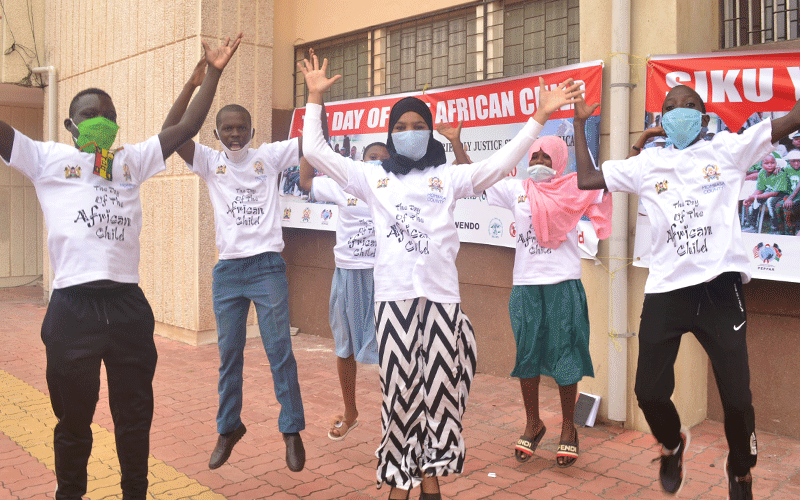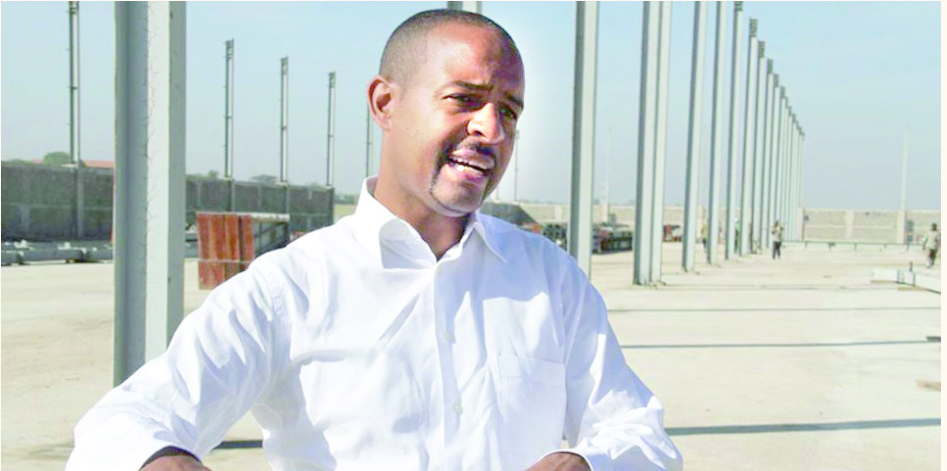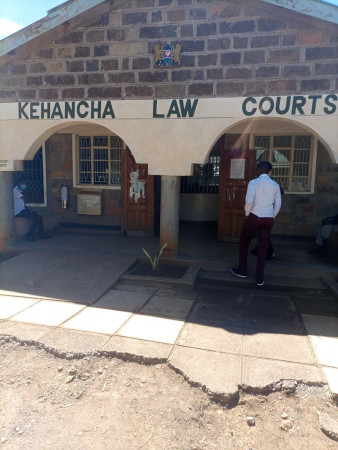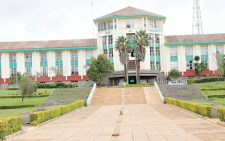CS Chelugui vows action against online child predators

Irene Githinji, Milliam Murigi, Harrison Kivisu and Noven Owiti
Labour Cabinet Secretary Simon Chelugui yesterday warned that stern action will be taken against social media predators taking advantage of virtual learning to abuse children.
He said those found culpable will be arrested and prosecuted for taking advantage of children by sharing inappropriate content when they are learning.
He said the Ministry is working in collaboration with Directorate of Criminal Investigations (DCI) and telecommunication companies to hunt down online predators, wooing unsuspecting children.
“Although we do not have actual statistics on online abuse yet, there are some individuals suspected of taking advantage of children and are sending inappropriate messages and videos.
Parents should be on the lookout for their children while they are online,” said the CS during commemoration of the Day of the African Child in Nairobi. Its theme was ‘Access to a Child-Friendly Justice System in Africa.’
He said the Cybercrime Act is explicit on its penalties and enforcement strength. “I call upon all of us to renew our efforts and rededicate ourselves to serve children in the justice system better,” he added.
Special attention
Towards this, he underscored the need to expedite finalisation of Children Bill 2020.
The CS said there has been a boost on investments in the children sector through allocation of resources, adding that there are about 237,000 children in the Inua Jamii programme.
At the same time, he said government is working on the governance structures of Child Welfare Society of Kenya following allegations of violations raised last year.
“The Welfare has grown and about 900 children have been under their care and now the focus is to ensure that those children are catered for as we deal with governance issues,” Chelugui said.
The 2019 census revealed that the population of children and young persons of ages 0-18 was 22.9 million, accounting for 48.1 percent of the population.
“This is a very large population which therefore calls for a special attention in national planning,” added the CS.
Under the Labour ministry, there are child protection units, five child rescue centres, 14 children remand homes, nine children rehabilitation schools and two reception or classification centres for children.
“My ministry has coordinated online training for all child protection practitioners in the context of coronavirus particulary on how to respond and handle child protection issues during this pandemic,” said the CS.
Meanwhile, as the country joined the rest of the world in celebrating the International Day of the African Child yesterday, a new report has revealed that Covid-19 pandemic could lead to a rise in child labour after 20 years of progress.
Gain at risk
Dubbed “Covid-19 and Child Labour: A time of crisis, a time to act” by the International Labour Organisation (ILO) and the United Nations Children’s Fund (Unicef), the report shows that millions of children risk being pushed into child labour as a result of the ongoing virus crisis.
According to the report, child labour has decreased by 94 million since 2000, but that gain is now at risk.
“As the pandemic wreaks havoc on family incomes, without support, many could resort to child labour,” said Guy Ryder, ILO director-general.
According to the report, children who are already engaged in child labour may be working for longer hours or under worsening conditions.
Further, most of them may be forced into the worst forms of labour, which cause significant harm to their health and safety.
“Social protection is vital in times of crisis, as it provides assistance to those who are most vulnerable.
Integrating child labour concerns across broader policies for education, social protection, justice, labour markets, and international human and labour rights makes a critical difference.”
The report reveals that Covid-19 could result in a rise in poverty and therefore to an increase in child labour as households use every available means to survive.
Some studies show that a one percentage point rise in poverty leads to at least a 0.7 per cent increase in child labour in certain countries.
“In times of crisis, child labour becomes a coping mechanism for many families. As poverty rises, schools close and the availability of social services decreases, more children are pushed into the workforce.
As we re-imagine the world post-coronavirus, we need to make sure that children and their families have the tools they need to weather similar storms in the future.
Quality education, social protection services, and better economic opportunities can be game-changers,” said Unicef executive director Henrietta Fore.
According to Fore, temporary school closures are currently affecting more than one billion learners in over 130 countries. Even when classes restart, some parents may no longer be able to afford to send their children to school.
As a result, more children could be forced into exploitative and hazardous jobs. Gender inequalities may grow more acute, with girls particularly vulnerable to exploitation in agriculture and domestic work, the brief says.
As of 2017, Global estimates showed that 152 million children were in child labour worldwide and new global estimates on child labour will be released in 2021.
At the same time, Mombasa county has renewed its pledge to strengthen protection of minors amid a rise in cases of physical abuse, neglect and forced labour in time of the Covid-19 pandemic.
Mombasa Children Coordinator Philip Nzenge said the county government is committed to improving the welfare of children in line with constitutional obligations.
The official, while delivering a speech during the restricted celebrations of the Day of the African Child held at Uhuru na Kazi building, said the county has developed a ‘Mtoto kwa Mtoto’ campaign within vulnerable areas to sensitise children on their rights
“Access to child friendly justice systems is key in ensuring child protection. In Mombasa, we are still grappling with rise in teenage pregnancy, juvenile criminals and that is why we have developed this programme,” he said.
Mishi Omar, 15, a pupil at Marimari Primary School is among 15 other community volunteer children who are involved in sensitising other children against ills in the society.
Reported cases
According to Lucy Sindani, Senior resident magistrate at the Tononoka children court, since Covid-19 struck the country, about 240 cases (sexual assault, criminal cases and violence-related) were recorded under certificate of agency at the court.
Further, a report from the Homa Bay county Children services department indicates that more than 95 per cent of cases of children’s rights violation happen at home.
The department recorded at least 1,939 cases of violation of children rights between July 2019 and May 2020.
County children services coordinator Peter Kutere yesterday said child neglect, custody, abduction, abandonment, defilement and child marriage are among the major categories of violation of children rights that were reported.
Homa Bay Assistant county commissioner Mohamed Yusuf assured that government agencies will deal accordingly with perpetrators of children’s rights violation.













